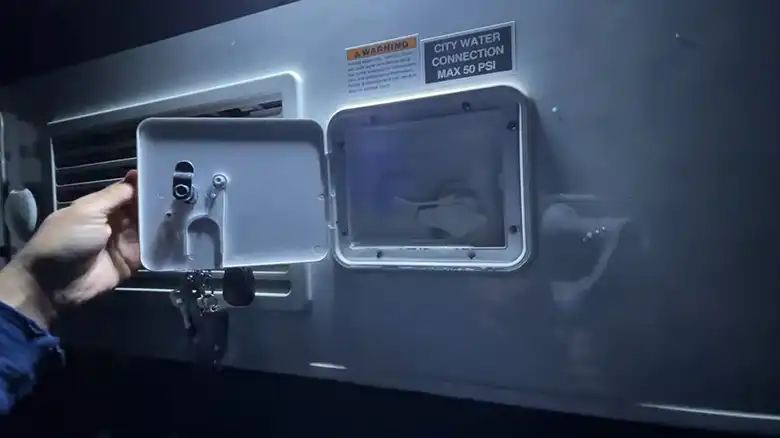Winter isn’t always convenient for everyone, especially those who live in RVs or trailers. Excessive cold temperatures like sub-zero always cause frozen water lines or plumbing on their RVs, making it unpleasant for the RVers. And this is the time when the RV antifreeze plays an important role. It’s basically a liquid that has a much lower freezing point compared to water. Therefore, it’s used in plumbing by replacing the water to make strong protection against dangerous freezing.
But there’s a common concern that comes to RVers’ minds regarding the antifreeze’s evaporation while using it. Does antifreeze evaporate over time? Well, yes it does.

What Causes RV Antifreeze to Evaporate?
RV antifreeze is designed to resist evaporation, but certain factors can accelerate the process. The primary causes include:
- High Temperatures
When the temperature rises above 25°C (76°F), the evaporation rate of RV antifreeze increases. Prolonged exposure to heat can speed up the process, though it’s still slower than water. - Mixing with Water
Mixing RV antifreeze with water, especially at a 50/50 ratio or higher, dilutes its properties. While the mixture still evaporates slower than pure water, it evaporates faster than undiluted antifreeze.
Understanding these factors helps RV owners take preventive measures to maintain their antifreeze’s effectiveness.
How to Minimize RV Antifreeze Evaporation?
While antifreeze evaporation is minimal, there are steps you can take to further reduce its impact:
- Store Properly
Always store unused antifreeze in a sealed, airtight container. Keep the container in a cool, shaded area to prevent heat exposure. - Use High-Quality Antifreeze
Opt for propylene glycol-based antifreeze, which is specifically designed for RV plumbing. This type is non-toxic, efficient, and offers better resistance to evaporation compared to ethanol-based alternatives. - Ensure Proper Application
When filling your RV plumbing system, avoid over-diluting antifreeze with water. Stick to the recommended proportions for maximum efficiency.
By following these practices, you can extend the lifespan of your RV antifreeze and ensure your plumbing remains protected throughout the colder months.
Common Questions About RV Antifreeze
Can RV antifreeze be reused?
Yes, RV antifreeze is reusable. You can store it in a container, seal it, and finally reuse it when necessary.
How long does RV antifreeze last?
Most RV antifreeze lasts anywhere between 1 to 5 years once applied. But if it’s kept properly sealed, it’ll remain effective for even longer.
What antifreeze should I use for the RV?
It’s better to use propylene glycol based antifreeze for your RV plumbing. The notable properties of this antifreeze are this antifreeze is specially made for plumbing and it’s non-toxic and non-flammable, unlike ethanol-based antifreeze.
Conclusion
So, it’s clear by now that RV antifreeze does evaporate but it’s so slow that it can’t be understood and seems like it doesn’t evaporate. Yes, evaporation is a negative impact here. But the extremely lower rate of it can’t make any significant difference in the antifreeze’s efficiency. If you have any confusion or further queries, feel free to knock us.


